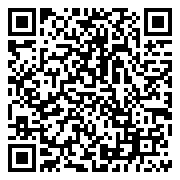

In today’s data-driven world, HR Analytics has become a critical tool for driving organizational success. It involves using people data to evaluate and design better systems, solve business problems, and make evidence-based decisions. HR professionals utilize data collected from HR systems and business information systems to analyze workforce performance, productivity, well-being, and alignment with strategic goals. By understanding how to leverage HR metrics and workforce analytics tools, HR departments can ensure that investments in human capital translate into improved organizational performance and a competitive advantage.
This course is designed to introduce participants to the importance of HR analytics and the tools used to measure and enhance workforce performance. Participants will learn to effectively use HR measurement tools to assess and improve organizational strategies and ultimately drive greater productivity and competitiveness within their companies.
By the end of the course, participants will be able to:
This course equips HR professionals with the skills and tools they need to make evidence-based decisions and improve organizational outcomes. By using HR analytics and workforce analytics tools, participants will be able to drive performance, enhance employee engagement, and align HR strategy with organizational goals. This course will empower you to manage and optimize human capital, giving your organization a distinct competitive edge in today’s fast-paced, data-driven world.
